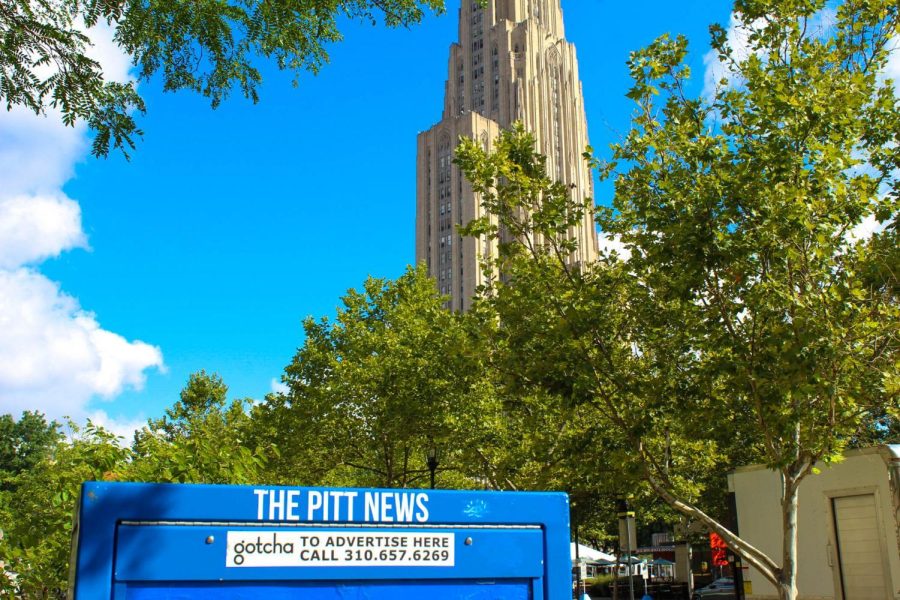Board of Trustees do not pass budget at meeting
June 29, 2011
Pitt will wait at least 10 more days to pass its budget — including the rise in tuition rates…. Pitt will wait at least 10 more days to pass its budget — including the rise in tuition rates. The University decision will wait until the state has finalized an amount for Pitt’s funding.
Although Friday’s annual Board of Trustees meeting did not include a budget, Art Ramicone, Pitt’s vice chancellor for budget and controller, said that the budget will most likely be passed on July 8 at the Board of Trustees’ Budget Committee meeting. He did not give an estimate of what the tuition increase would be.
Chancellor Mark Nordenberg took much of the Friday meeting to discuss the impending cut in relation to Pitt’s state funding and the state’s reliance on Pitt to educate its residents. The Board did not pass a budget and has not at the annual June meeting in many years. The Board members are waiting for the state legislature to pass its budget.
The state has a constitutionally-mandated June 30 deadline for its budget, but the state has continually blown past the deadline in the past 10 years — sometimes by months. But it looks like the state might meet the deadline this time around.
The Senate and House have agreed on 19 percent cuts to state-related universities, which means that Pitt will suffer a cut in state appropriations and in-state students will pay the price in tuition increases.
Regardless of the amount of funding the state decides to cut, Pitt will lose more than $20 million in federal stimulus funding that it received starting in 2009. Pitt received $184 million in total in 2010.
Pitt spokesman Robert Hill said that it would be unsuitable to talk about how the University is going to deal with the impending funding cuts and the drastic reduction in state appropriations until the state budget is passed. He also declined to comment on whether the majority of the burden will fall on students or whether there will be cuts in University spending as well.
“It would be inappropriate for Pitt to discuss proposed appropriation numbers or impacts before the Commonwealth’s budget and the University’s share is law,” Hill said in an email.
But Ramicone said that the board is going to try not to put the whole burden of price on the students.
“We realize there are working families and working students, so we’re going to try to be reasonable about it,” Ramicone said.
In his address to the board, Nordenberg emphasized the importance of Pitt in both the state and the city — specifically the University’s importance in creating jobs, doing research and preparing Pennsylvania students for the future.
Pitt became a state-related school in the 1960s, as part of an agreement with the legislature. The state would provide a portion of the University’s budget in exchange for lower tuition for in-state residents. The appropriation has been about 10 percent of Pitt’s budget over the past decade.
“Since the mid-1960s, the state has had a desperate need to provide reasonably-priced educational opportunities,” Nordenberg said at the meeting.
Nordenberg emphasized that the University was aware of the daunting challenges faced by the current state administration from the budget deficit they inherited.
“The governor and other elected leaders face difficult budgetary challenges and Pitt must be willing to do its part,” he said.
After Nordenberg spoke, the Nominating Committee elected two new trustees to the board: Roberta Luxbacher and Thomas Richards.
The trustees also re-elected Stephen Tritch as chairman of the board, Suzanne Broadhurst as vice chairwoman and Robert Hernandez as vice chairman.
The board also re-elected various trustees, including Emil Spadafore Jr., A. David Tilstone, G. Nicholas Beckwith III, Michael Bryson, Charles Bunch, Robert Lovett, Martha Hartle Munsch, John Pelusi Jr. and William Strickland Jr.
Broadhurst, Bryson, Hernandez and Pelusi were also elected to serve as trustees of the University of Pittsburgh Trust.







